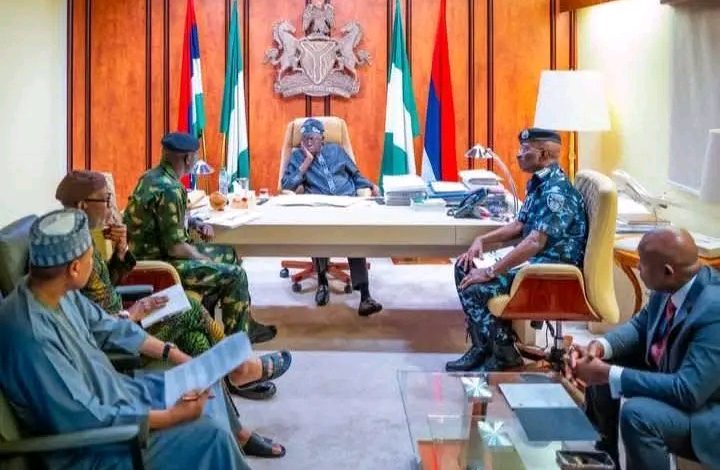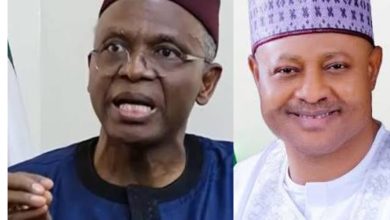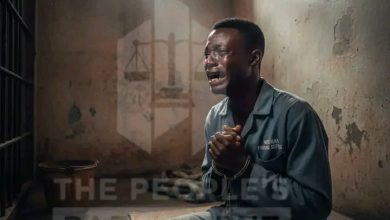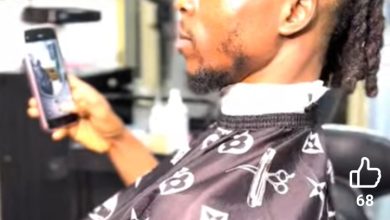“When a Country Cries for Strength, Can a Chin-on-Hand President Reassure Anyone?”
........Body Language Debate: Analyst Questions President’s Posture in Security Meeting Photos

By Passman Akpos
A media and communication expert, Dr. Uche Nworah, has raised concerns over the optics and public perception surrounding photos recently released by the Presidency showing President Bola Tinubu in a closed-door meeting with Nigeria’s service chiefs.
According to Dr. Nworah, the President’s repeated posture in the images—hand resting on his chin—may be sending mixed signals to a country currently grappling with insecurity, kidnappings, and heightened national anxiety.
In a detailed commentary, Nworah noted that while the gesture can be interpreted in multiple ways—contemplation, skepticism, boredom, or uncertainty—the ambiguity itself is problematic during such a sensitive period.
> “One interpretation described it as a thinking pose. Another suggested skepticism. A third said it may even be read as boredom or insecurity,” he wrote.“The meaning is highly dependent on context—and ambiguity is the enemy in times of national concern.”
He argued that in moments of national tension, leaders are generally expected to project confidence, clarity, and control through both speech and posture. Typical commanding body language, he explained, includes an upright torso, chin up, hands placed firmly on the table, direct eye contact, and forward-leaning engagement.
> “The ‘chin-in-hand’ pose does not naturally convey decisiveness,” Nworah stated.“Even if the President was simply thinking or listening, optics outweigh intent in public communication.”
Nworah warned that Nigerians, already anxious due to rising insecurity and reports of international attention on the country’s crisis, may subconsciously interpret the President’s posture as a sign of uncertainty or lack of full command.
He described the released images as “not the strongest visual message for the moment”, despite recent successes such as the rescue of abducted churchgoers in Kwara State and the escape of some kidnapped schoolgirls in Niger State.
The communication scholar emphasized that body language becomes even more critical in crisis situations, where the public is searching for visible leadership and reassurance.
> “Personally, I do not consider this the strongest posture for the President at this moment. The posture is giving off negative vibes such as boredom, uninterestedness, and tiredness,” he wrote.“In times of crisis, even subtle cues can shape public perception.”
Dr. Nworah, a visiting lecturer in the Department of Mass Communication at Paul University, Awka, urged presidential handlers to be more intentional about the images they release during national emergencies.
He concluded by asking Nigerians what they make of the President’s posture—suggesting that in politics, “symbolism becomes substance.”





